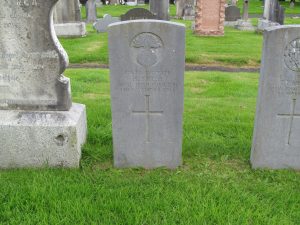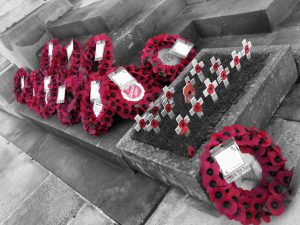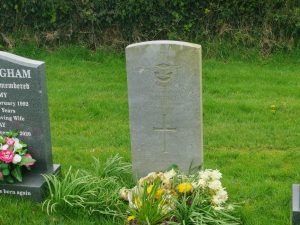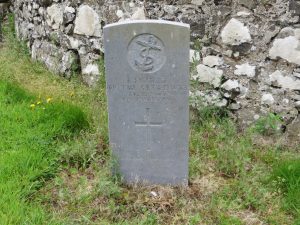Biggart, D (David)
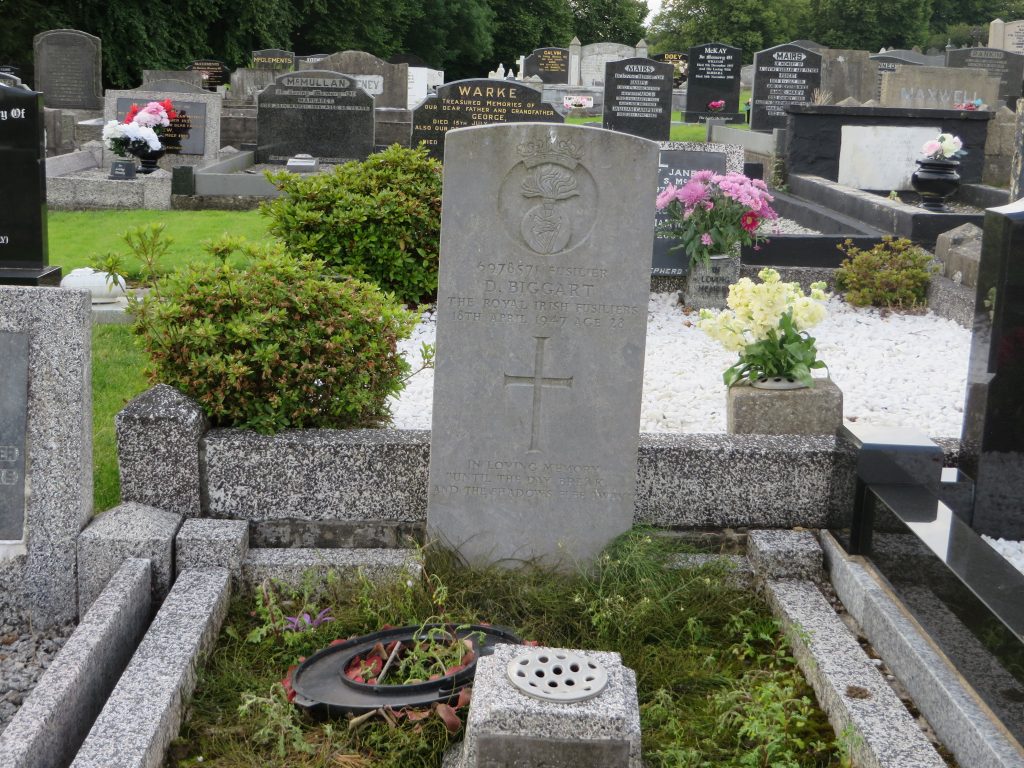
Fusilier David Biggart
Fusilier David Biggart was the son of Robert and Matilda Biggart, of Coleraine; husband of Bella Biggart, of Cross Lane Coleraine. He served with the 2nd Battalion, Royal Irish Fusiliers.
David joined the army during 1935. He served in Palestine from 1936 to 1938 and then moved onto the island of Malta, before going back again to Palestine briefly before returning to the island once again.
After returning to Malta, the Italian and German siege began during June 1940, and David was admitted to hospital during this either in October or November 1940 after receiving a gunshot to the forehead. He did though survive this and returned to active service on the island, which at this time was now being bombed on a regular and daily basis.
The battalion stayed throughout the siege until June 1943 when they moved onto the Greek island of Leros after a short stay in North Africa to recover from their Malta siege ordeal.
The British did not have air superiority on the island after seizing it from the Italian garrison, who had put up no defence. The Germans did not stand back and quickly sent in the Luftwaffe.
Once again, the weary men of the 2nd Battalion, Royal Irish Fusiliers would receive constant attacks and bombings from the German air force. This time they not only got bombed but, on the 12th November 1943, they were invaded by land and air.
Fighting on the island went back and forth for a few days, with the Germans taking advantage of their air support whereas the allies had very little. By the 16th the commanding officer, Brigadier Robert Tilney surrendered his troops and the island, he believed that a further loss of life was futile.
Fusilier David Biggart was listed as “Missing in Action” on the 16th November 1943. It wasn’t until the 18th May 1944 that he was officially known to have survived and was now a POW.[1] He was at Oschatz Stalag IV-G. His POW N. was 267929.
Oschatz Stalag IV-G was not a normal prison camp, but a series of smaller working camps scattered around the Saxony area of Germany with its headquarters centralised in Oschatz. It was some of the last camps to be liberated at the end of the war. Many of the prisoners had been marched west to the Americans who were at the River Vulgar in 1945. This allowed the German guards to surrender to them rather than the vengeful Russians.
David Biggart would have at this stage been returned home for leave and to be reequipped. He more than likely took no more part in the war and probably finished his military career during 1946.
After leaving the army he become a labourer, unfortunately he suffered from a perforated gastric ulcer, which ultimately took his life at Bann View Hospital a year later. David’s death certificate says he passed away on the 29th April 1947 rather than the 18th recorded with his burial.
Date of Death: 18/04/1947 (Aged 28)
Service: Fusilier, 2nd Battalion, Royal Irish Fusiliers
Service Number: 6978571
Burial Location: Sec. F. Grave 3055.
[1] A POW is a Prisoner of War.
